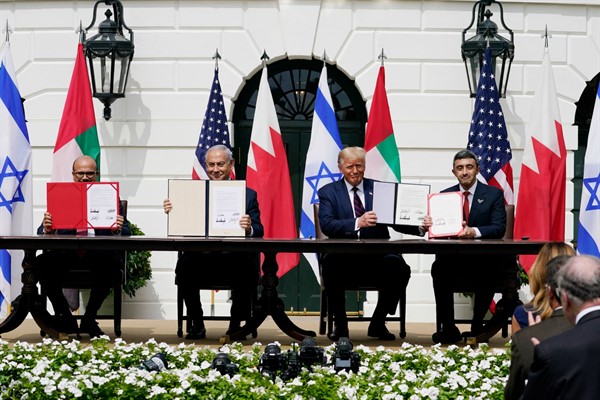When officials from Israel, the United Arab Emirates and Bahrain joined President Donald Trump at the White House to sign landmark diplomatic agreements Tuesday, the event was loaded with domestic political ramifications for each country. But beyond that—and beyond the timing of the ceremony—the deals normalizing the UAE and Bahrain’s ties with Israel carry major regional implications. And, perhaps surprisingly, the presence of tiny Bahrain is a crucial element of their momentum.
It’s no coincidence that the only top leaders at the White House ceremony for the so-called Abraham Accords were Trump and Israeli Prime Minister Benjamin Netanyahu. Trump, facing a tough election in seven weeks, wants to wring as much political benefit out of the normalization agreements as he can. Then there’s Netanyahu, who faces such steep political troubles at home that the deals, significant as they are, may not be enough to save him.
The heads of state of both the UAE and Bahrain stayed home, sending their foreign ministers to Washington instead. It was in keeping with their efforts to portray formal ties with Israel as part of a process that is consistent with pan-Arab efforts to push for the establishment of a Palestinian state.

